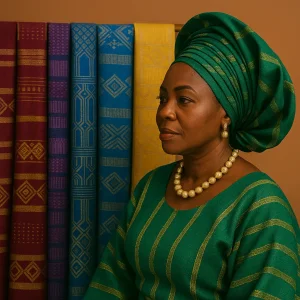
Visa rejection letters arrive with clinical efficiency: "We regret to inform you..." But behind each formal denial lies a human story of financial sacrifice, family expectations, and dreams deferred. For many Nigerians, that embassy letter doesn't just represent a closed door—it feels like the last door available, especially after investing life savings and emotional energy into what seemed like the final opportunity for international mobility. The psychological weight intensifies when you've followed every requirement, submitted perfect documentation, and still faced rejection from UK, US, Canadian, or European authorities.
In this guide:
Transform your visa setback into a strategic advantage through psychological recovery techniques, practical reapplication strategies, and alternative pathway identification, turning rejection data into future success intelligence.
This moment of apparent closure often conceals unexpected opportunities for strategic advancement and personal growth.
Disappointment demands dignity
The financial mathematics of visa rejection hit differently for Nigerian families. Beyond the direct costs of ₦150,000-₦300,000 (application fees, documentation, embassy travel), there is the opportunity cost of time off work, missed local investments, and family resources redirected from immediate needs toward international dreams. The emotional toll compounds when facing relatives who contributed funds or colleagues who were aware of your application timeline.Your anger at systemic bias is legitimate. Your frustration with corruption affecting Nigeria's global reputation is valid. The sense of injustice when perfect documentation meets arbitrary rejection deserves acknowledgement, not dismissal. This disappointment reflects the genuine loss of money, opportunity, and sometimes dignity in a process that can feel designed to exclude rather than evaluate fairly.
Cooling creates clarity
Post-rejection decision-making operates under what psychologists call "cognitive narrowing"—a phenomenon where emotional overwhelm limits our ability to see strategic options. The immediate impulse to reapply, consult multiple agents, or consider questionable shortcuts represents normal responses to trauma, not character flaws or desperation.Professional psychological frameworks suggest creating processing space before major decisions. This cooling period isn't passive waiting—it's active emotional regulation that prevents expensive mistakes driven by desperation rather than strategy.
Strategy beats reaction
Key Insights:- Document rejection reasoning: Contact the embassy within 30 days, requesting specific rejection reasons under the freedom of information policies. UK, US, Canadian, and EU consulates must provide clear explanations that help identify areas for improvement, rather than relying on guesswork to determine what went wrong.
- Build alternative credentials: Consider professional certifications, academic programmes, or business investments that strengthen future applications. Canadian Express Entry, UK Skilled Worker programmes, and EU Blue Card pathways often value credentials more than tourist visa history.
- Establish a European foothold strategically: Countries like Portugal, Malta, and Ireland offer more accessible visa programmes for Nigerians. A successful travel history to these nations significantly enhances subsequent applications to traditionally challenging destinations, such as Germany, France, or Scandinavia.
- Time reapplication strategically: Most embassies require a 3-6 month gap between applications. Use this period to address specific rejection reasons rather than submitting identical applications. Document any changed circumstances (new employment, property acquisition, family status changes) that demonstrate stronger ties to Nigeria.
- Connect with successful applicants: Join verified social media groups of Nigerians who've successfully obtained visas to your target destination. Their strategies, timing, and documentation approaches provide practical intelligence that generic advice cannot match.
Community transforms isolation
Visa rejection creates unique isolation—losing money that most people can't afford, while facing judgment from those who have never attempted international applications. This experience connects you to millions of Nigerians navigating similar systemic barriers, creating opportunities for mutual support and strategic collaboration.The rejection doesn't define your worth or predict future outcomes. It provides data about current approaches whilst revealing the resilience required for long-term international mobility success. Many Nigerian professionals eventually achieve their international goals through strategic persistence rather than perfect first attempts.
Your setback becomes valuable experience that helps others avoid similar pitfalls whilst building a systematic approach that eventually opens doors others couldn't even find.




